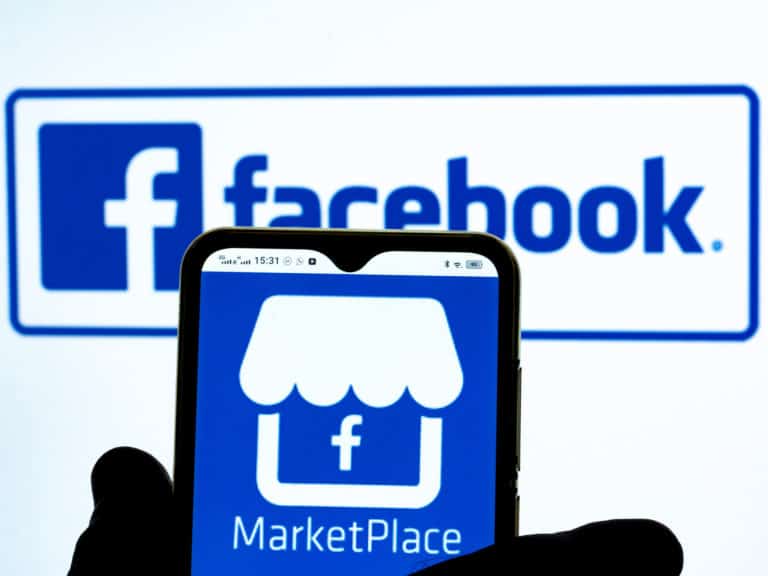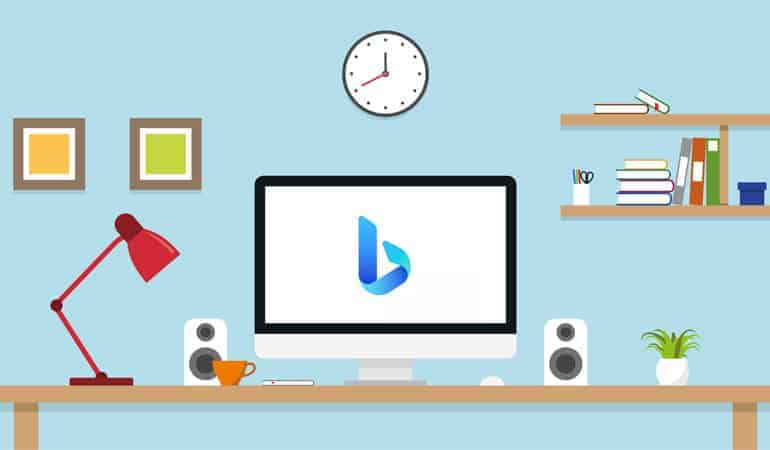
Google is the SERP King. However, Microsoft’s Bing isn’t far behind. Not optimized your SEO for Bing? Then lucrative website traffic is passing you by…
Remember Bing?
It’s easy to forget that other search engines exist. Google dominates the market and often absorbs all of your SEO budget and attention. It’s common practice for agencies and marketers to take only Google into account when dealing with Search Engine Optimization.
But what about SEO for Bing? Is it worth merging Bing into your SEO strategy?
In a word, yes (with many exclamation marks). Here’s why.
SEO For Bing Has a Surprising Audience Share.
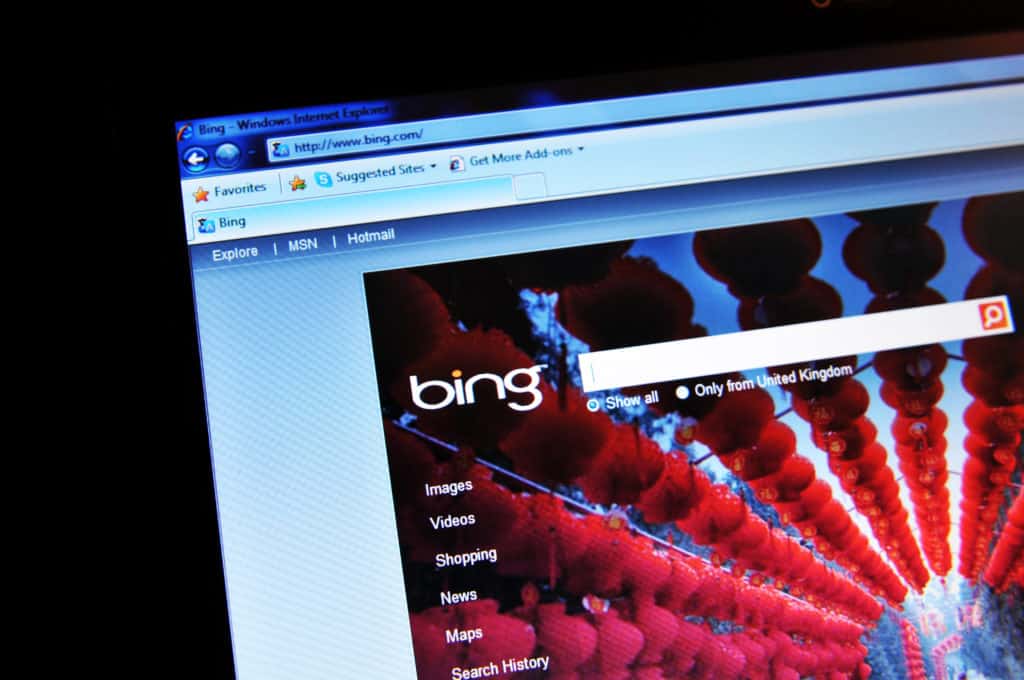
Most fail to recognize that the second most-used search engine remains a lucrative channel for traffic. While Google claims an undeniable preference for many, Bing still has a considerable market share; especially when realizing that Yahoo Search is a Bing product. Some 21.3% of the market (to be exact) rests with Bing/Yahoo according to searchengineland.
It’s not just Yahoo that Bing supports. Here’s the full list:
- Yahoo!
- AOL
- DuckDuckGo
- Ecosia
- MSN
- Lycos
- Search.com
- ClassifiedAds.com
As so many websites focus solely on appeasing old Mother Google, you can quickly put yourself ahead of local competition by presenting your business to the quarter of internet searchers that ignore Google and head for the Bing search bar. If your competitors aren’t utilizing Bing, then you’ve got a marketplace ripe for the picking.
From a technical standpoint, Bing doesn’t provide the same headaches as Google enjoys causing. That’s because SEO for Bing doesn’t drop last-minute algorithm updates and leave everyone scrambling to learn a new set of rules. Yet, before this begins to sound biased and Google pays someone to make me disappear, let’s explore Bing’s advantages a bit further…
Bing Audiences Are Better ‘Qualified’.

Although this is debatable depending on who you ask, there is evidence that SEO for Bing provides a more qualified audience. That phrase doesn’t mean that the users are more intelligent, but rather the searchers have engaged intent and will most likely convert for measurable outcomes beyond just visiting your site. Basically, they are more likely to become paying customers.
In turn, with a higher number of qualified visitors, bounce rates are lower, and interaction, time on page, and pages per session are higher.
So, why are Bing audiences more likely to be ‘qualified’ and become customers? It’s all to do with demographics and location. There is a difference between Google and Bing users in terms of age, race, wealth, and religion – and these aspects drive people to search differently. Of these factors, those considered ‘conservative’ are more likely to search using Bing.
As an example, research suggests that the older demographic is more likely to input a search term as a long-tail keyword, whereas the younger are more inclined to use snappy and shorter search terms. Bing seems to deal with the long term key phrase in a better manner, and will therefore attract that clientele.
According to various sources, including Word Stream, Bing users are typically…
- More mature – an average of 45 years old
- More educated – 50% os users holding a college degree, and 17% boasting of an advanced degree from somewhere posh.
- More affluent – A third of users come from a household with income over $100k. An average Bing user spends 35% more when shopping online than through Google.
- More likely to be married and have children.
You can read more about this subject courtesy of Aborg.
Bing Has A Better Video Search.
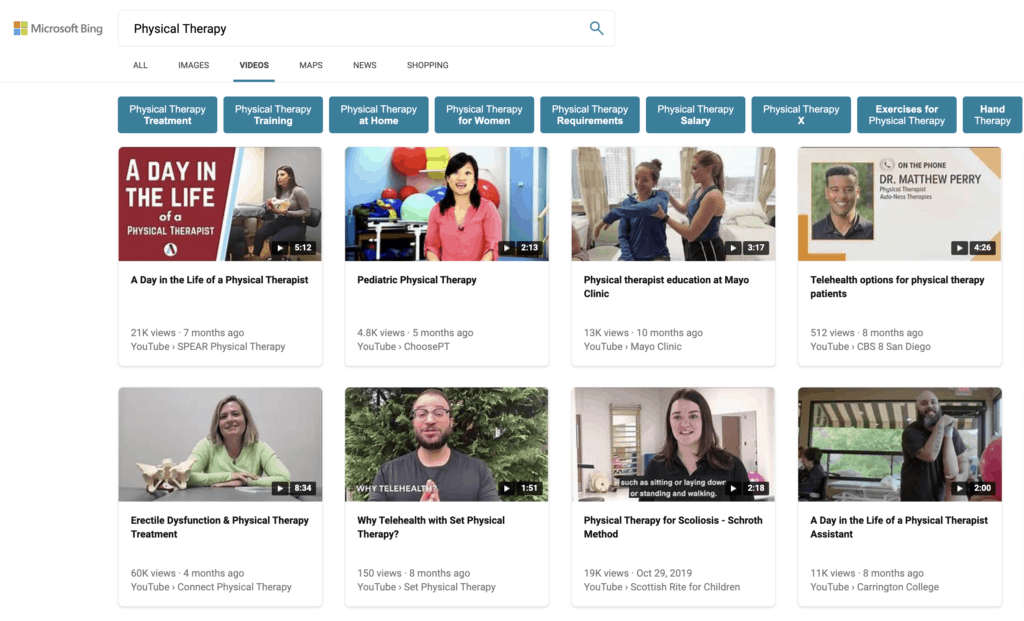
Perhaps the most significant difference between Google and Bing is video search. Rather than follow Google’s lead with a vertical list of videos and small thumbnails, Bing opts to display large thumbnails that you can play like a gallery, without leaving the search page. While this is great for searchers tired of having to trawl through and open each result individually in a new tab, it has recently led to Bing receiving that dubious reputation as ‘the porn search engine‘. Oh, er…
Ok, so without lingering on that last point, what does video (careful now) have to do with SEO? Search algorithms are increasing the priority that websites with video receive. Boiled down, presenting a video about your services and uploading it to YouTube, Vimeo (or your own site), will do wonders for jumping up the rankings.
Other benefits include an increase in click-through rates, with previous studies indicating a 157% increase in organic traffic across all search engines when a video is involved. Bounce rates also see a benefit with users staying on a page for twice as long, compared to a page without a video.
Another great benefit revolves around the creation of quality backlinks, which Bing and Google always give brownie points for. All of the above creates trust with the search engines and will hold your online profile in good stead.
In summary, if you work heavily with videos that promote your services and communicate with your clients, then Bing is worth paying attention to.
Social Media Makes a Bigger Impact.

We have all been made aware that Google absorbs social media accounts into the grand scheme of SEO. These profiles certainly play their part in getting you that ranked position. However, Bing rewards websites using social media and multimedia far more than Google currently does (as of November 2020).
Any website with strong social connections, reviews, and signals will receive the VIP treatment through the Bing SERPs. The more shares, recommendations, and likes that your business holds on Facebook, Twitter, Instagram (other social media platforms are available), then the impact is faster. Bing can even pick up relevant posts on Pinterest. Beat that, Google (please don’t take my family)!
Bing has officially stated that they use social shares to understand if a page is popular among users. So it’s no guesswork on our part or assumption. It’s a rule. Is your content being shared widely by users? Bing sees that as a positive signal in its algorithm and will promote you through the rankings due to your social influence.
In A Nutshell…
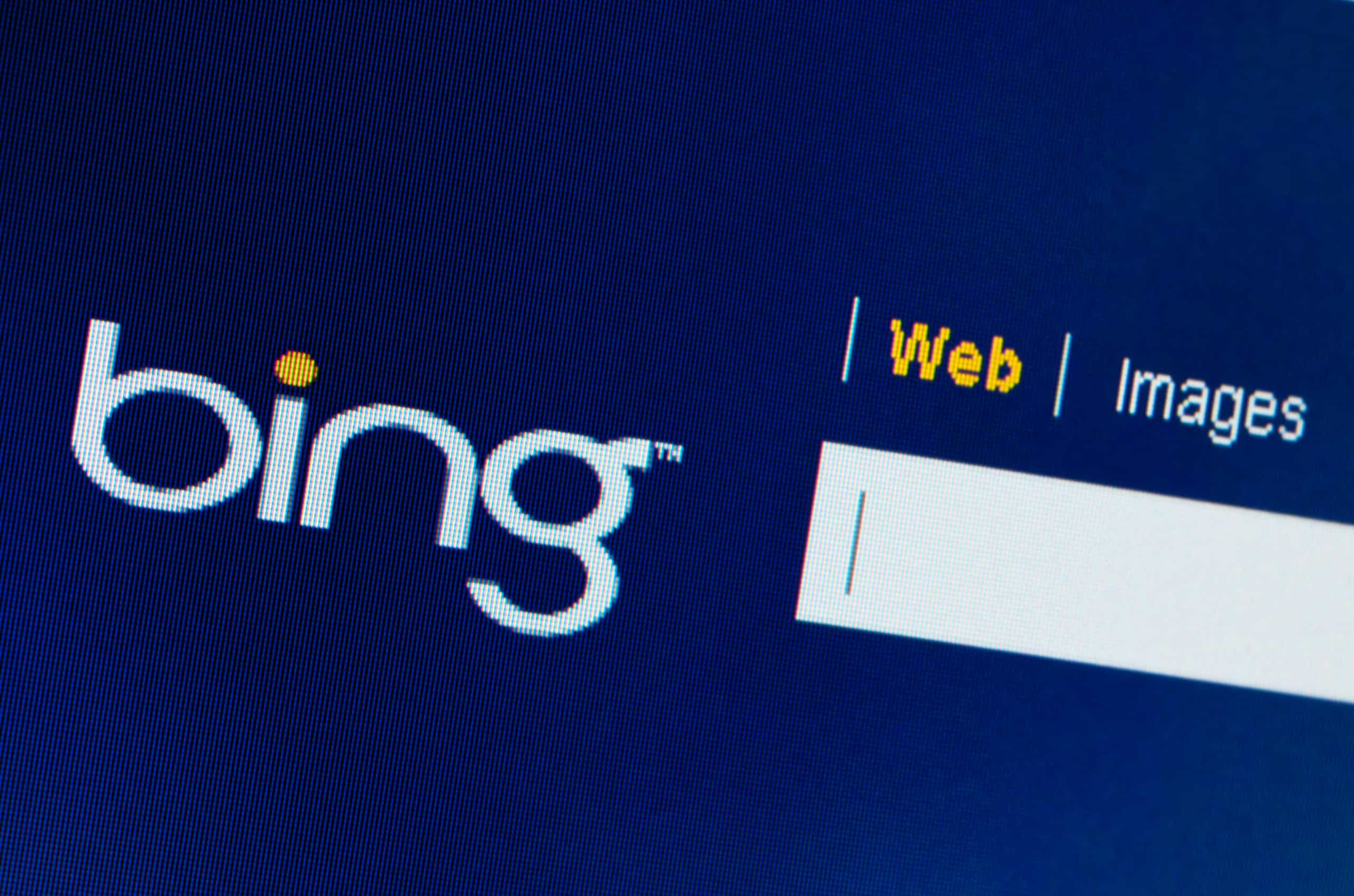
While Google will likely remain king of the SERPS (and they haven’t threatened me into saying that), mainly due to the company’s constant innovations and hefty investment in itself, Bing manages to perform in several areas that may surprise you.
We aren’t suggesting that you plunge all of your efforts into SEO for Bing and ignore old Mother G, however. One of the real differences between Google and Bing remains Mother G’s ability to pull information from the furthest corners of the internet, something that Bing hasn’t entirely accomplished as of yet. Google can also do a better job of understanding complex questions, too. But that’s a topic for another day.
In short, SEO for Bing is well worth your attention. Why alienate more than 20% of internet users when they could be supporting your business? By striking an appropriate balance between the attention you give to both Google and Bing’s algorithms, your SEO strategy should ensure that you reach as wide an audience as possible.
And should I go missing for pointing this SEO for Bing subject out, please contact Google about my whereabouts. They will probably have me in one of their sweatshops.
Want to discuss this matter further? Get in touch with us! We’d be happy to geek out on all things SEO with you. Why not send us a message? Check out our contact page for more information.







